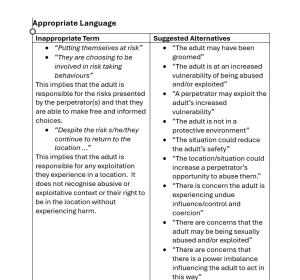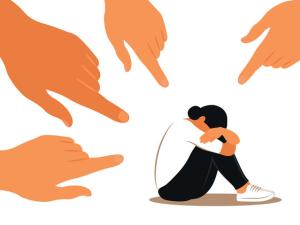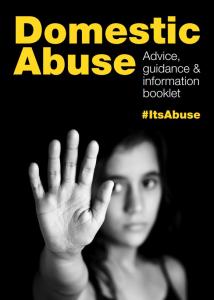Victim Blaming
What is victim blaming?
Victim blaming is any response that explicitly states or implies that the victim is to blame for the abuse they have experienced. Victim blaming often revolves around actions that a victim could have taken (or not taken) to avoid experiencing abuse. In reality, violence and abuse will happen regardless of the victim’s choices.
When someone speaks out publicly about personal experiences of violence or abuse, or a high profile case is covered in the media, similar comments and responses come up time and time again. These include;
“Well, they should have left the relationship sooner.”
“What did they expect, walking home alone at night?”
“They probably shouldn’t have drunk so much.”
“But what were they wearing?”
These are all examples of victim blaming
Whether intentional or unintentional, victim blaming can cause serious harm to survivors of domestic abuse and sexual violence, leaving them feeling responsible for their abuser’s actions, therefore increasing feelings of shame and guilt.
Blaming victims for their own abuse is never acceptable, abusers are solely to blame.
What effect does this have on survivors?
The scars left from abuse are not just physical. Experiencing emotional, physical or sexual violence can have long-term psychological impacts on a survivor, including self-doubt and low-self-esteem. This is why a supportive response to a disclosure of abuse is so important on the journey to recovery.
One of the greatest barriers to seeking help and reporting abuse is the victim feeling they are to blame for what has happened to them. When people speak or behave in a way that reinforces this feeling of self-blame, the impact of the abuse may be greater, leading to a longer recovery.
- When someone places the blame on a survivor, it invalidates their experiences, enhancing their feelings of isolation and self-doubt.
- Victim blaming may also discourage a survivor from speaking up again or seeking any form of justice or support, through fear that they will not be believed.
- In contrast, positive responses (where victim blaming attitudes are not present) can reduce feelings of post-traumatic stress, depression and health issues.
What is a more helpful response?
If someone tells you that they have experienced abuse, rather than focusing on what they could have done differently, think about how you can support them moving forward.
Listen to them, believe them, and let them know that it is never their fault. Look to the future, and their healing journey, by empowering them in their next steps.
Examples of inappropriate language and suggested alternatives (Click on the documentation below)
The use of Victim Blaming Language:
Victim blaming language places the responsibility on victims for the abuse perpetrated towards them. It is described as ‘the transference of blame from the perpetrator of a crime to the victim-survivor, who is held entirely or partially to blame for the harm they suffered’ (Ryan, 1971).
The use of victim blaming language is often unconscious and not malicious. It can happen for a range of reasons:
– using language that has ‘always been used’ and never challenged,
– lack of understanding of the dynamics of domestic abuse,
– conscious or unconscious bias.
Despite the intent, what is important is that we as professionals uphold professional standards and challenge this appropriately.
If we fail to challenge, victim blaming language can increase risk and empower perpetrators. The use of victim blaming language can increase risk by:
- Placing blame of the victim, this can reinforce
the abusive behaviour of the perpetrator. - Reinforcing messages shared by the
perpetrator that the victim will not be
believed and therefore placing barriers on
the victim reporting the abuse or accessing
support. - It reinforces the perpetrator’s ability to ‘get
away with’ the abuse they perpetrate and
therefore evading accountability. - Creating a lack of trust in professionals
Wondering what you can do to help make change?
The next time you hear someone say, “why were they out so late?” “What were they wearing?” “Were they drunk?” Challenge them!
- Ask them why does that matter?
- Educate them.
- Follow RASA’s ‘It’s not me, it’s you!’ campaign
Need help and support?
If you know of anyone who has been subjected to sexual violence and want to access support – they refer themselves, or you can refer them into a service, using RASA’s online forms on their website –RASA Merseyside – Make a Referral or by contacting us on 0151 558 1801.
Further support and resources:
IOPC-ending-victim-blaming-guidance-Feb-2024.pdf (policeconduct.gov.uk)
domestic_abuse_advice_and_guidance_booklet.pdf (merseyside.police.uk)
Stop Victim Blaming – Victim Support NI
RASA Merseyside – Read more about the campaign, #it’s not me, it’s you!



